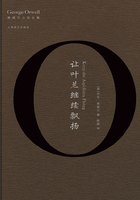Others are alwayes signes of honour, as to draw near, and discourse decently and humbly, to give way, or to yeeld in any matter of private benefit: In these actions the City can alter nothing. But there are infinite others, which, as much as belongs to honour, or reproach, are indifferent; now these, by the institution of the City, may both be made signes of honour, and being made so, doe in very deed become so. From whence we may understand, that we must obey the City in whatsoever it shall command to be used for a sign of honouring God, that is to say, for Worship; provided it can be instituted for a sign of honour, because that is a sign of honour, which by the Cities command is us'd for such.
XVII. We have already declared which were the Laws of God, as wel sacred as secular, in his government by the way of Nature onely. Now because there is no man but may be deceived in reasoning, and that it so falls out, that men are of different opinions concerning the most actions, it may be demanded farther, whom God would have to be the Interpreter of right Reason, that is to say, of his Lawes. And as for the Secular Lawes, I mean those which concern justice, and the carriage of men towards men; by what hath been said before of the constitution of a City, we have demonstratively shewed it agreeable to reason, that all Judicature belongs to the City, and that Judicature is nothing else but an Interpretation of the Laws, and by consequence, that everywhere Cities, that is to say, those who have the Soveraign power, are the Interpreters of the Lawes. As for the Sacred Lawes, we must consider what hath been before demonstrated in the fifth Chap. the 13. art. that every Subject hath transferr'd as much right as he could on him, or them, who had the supreme authority, but he could have transferred his right of judging the manner how God is to be honoured, and therefore also he hath done it; That he could, it appeares hence, that the manner of honouring God before the constitution of a City was to be fetcht from every mans private Reason; but every man can subject his private Reason to the Reason of the whole. City Moreover, if each Man should follow his own reason in the worshipping of God, in so great a diversity of worshippers, one would be apt to judge anothers worship uncomely, or impious; neither would the one seem to the other to honour God: Even that therefore which were most consonant to reason, would not be a worship, because that the nature of worship consists in this, that it be the sign of inward honour; but there is no sign but whereby somewhat becomes known to others, and therefore is there no sign of honour but what seems so to others. Again, that's a true sign which by the consent of men becomes a sign; therefore also that is honourable, which by the consent of men, that is to say, by the command of the City, becomes a sign of honour. It is not therefore against the will of God, declared by the way of reason onely, to give him such signs of honour as the City shall command. Wherefore Subjects can transferre their Right of judging the manner of Gods worship on him or them who have the Soveraign power. Nay, they must doe it, for else all manner of absurd opinions, concerning the nature of God, and all ridiculous ceremonies which have been used by any Nations, will bee seen at once in the same, City. whence it will fall out, that every man will beleeve that all the rest doe offer God an affront; so that it cannot be truly said of any that he worships God; for no man worships God, that is to say, honours him outwardly, but he who doth those things, whereby hee appeares to others for to honour him. It may therefore bee concluded, that the Interpretation of all Lawes, as well Sacred, as Secular, (God ruling by the way of nature only) depends on the authority of the City, that is to say, that man, or councell, to whom the Soveraign power is committed; and that whatsoever God commands, he commands by his voyce. And on the other side, that whatsoever is commanded by them, both concerning the manner of honouring God, and concerning secular affaires, is commanded by God himselfe.














